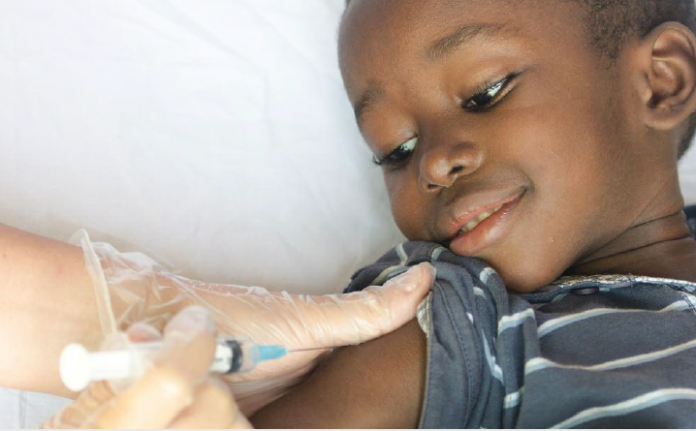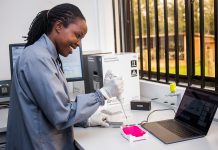In this interview, public health specialist Dr Wilfred Alexander Chalamira Nkhoma from the World Health Organization (WHO) Office for the Africa Region speaks to us about the priorities for tackling infectious diseases in Africa, with a particular focus on Tuberculosis (TB) and viral hepatitis
On the priorities for tackling infectious diseases in Africa, with a particular focus on Tuberculosis (TB), Dr Wilfred Nkhoma from the World Health Organization (WHO) Office for the Africa Region explains that the traditional way to treat and control communicable diseases revolves around the three standard domains of public health.
The first domain is primary prevention which is about what actions are taken by the health system or the individual to protect themselves from or to prevent diseases. Actions here include improving living conditions or immunisation, for example. The second domain is
secondary prevention, that revolves around the identification of infection or active disease and taking actions to modify what one finds. Here, ordinarily, you identify what diseases you are dealing with and when you do find something, you should link people to the appropriate treatment that works, Dr Nkhoma underlines.
The third domain is tertiary prevention, which means you are dealing with somebody who already has a disease and they have developed complications but you want to maintain and improve their quality of life. The same principles apply to diseases such as Tuberculosis (TB), Dr Nkhoma tell us, which people can pick up when they are exposed to TB causing germs in community settings where they live or in households where they are
in close proximity to somebody who already has this infection. Therefore, people need to take steps to improve their own health and governments need to deliberately invest in improving the social economic status and living conditions of their people, Dr Nkhoma argues. He goes on to detail additional priorities to tackle infectious diseases, in his own words.
“The prevalence and incidence of TB and other infectious diseases are very high, so there must be universal access to quality diagnosis and uninterrupted supply of effective quality-assured medicines for timely treatment close to where the people live. We should also
have programmes and systems that support those patients in the event that they develop complications and disabilities from that infectious disease, so their quality of life does not become unbearable.”
While people infected with TB bacteria have a 10% lifetime risk of falling ill with it, Dr Nkhoma proceeds to explain how this affects those with compromised immune systems, such as people who are living with The AIDS virus or use tobacco, for example. He tells us that the natural progression of TB means that bacteria can get inside a person and infect them. That the individual can either get rid of the infection or contain it within the body system for a long time or go on to develop the acute disease. He goes on to explain more about the negative role immune system lowering conditions, including HIV and AIDS, cancer and diabetes, that stay with a person for life, play in increasing the likelihood of the infection progressing to active or recurrent disease. “If you are of normal immunity, the proportion of those who will keep a disease, contain it or get rid of it will be much larger. When you have low immunity, however, for example through HIV infection, diabetes, cancer, smoking or other immune-reducing events then your probability of progressing to active disease after getting infected by bacteria increases substantially.
“When you are HIV-infected, you remain in that state for life. The difference between these other immune lowering conditions compared to HIV is that it depends on how much damage you have incurred in your lungs where smoking is concerned. If you stop smoking
before your lung systems are destroyed, you limit the chances and extent to which the TB bacteria can take advantage and proliferate.
Dr Nkhoma then details the extent to which TB is one of the leading causes of death worldwide and the most single infectious agent, ranking even above HIV/AIDS. We know that there has been an analysis of the impact of these described conditions and also hepatitis. The world has now woken up to the fact that there are more people today living with hepatitis than those with HIV, TB or malaria, Dr Nkhoma emphasises.
“The analysis from 2000-2015 looked at the extent to which these conditions resulted in deaths and it shows that since 2000, the mortality rate of those with HIV was going up significantly but by 2005, when antiretroviral therapies (ART) became widely available, that trend has declined significantly to such an extent that by 2015, hepatitis has taken over HIV, malaria and TB. And viral hepatitis is the one infection among these conditions whose mortality rate has continued to increase.
“So, the one other communicable condition that the world should now be taking notice of is viral hepatitis. After this comes TB and by 2015 it was killing close to 1.3 million people. In the same year, hepatitis resulted in the death of 1.5 million people. HIV had slightly declined to around 1.2 million people. The high mortality burden from HIV/AIDS and TB were still there, but the significant observation to make is that the decline in mortality from HIV/AIDS is much deeper and faster, while that from TB is steady but slower compared to that from HIV/AIDS. By the time we get to 2030, if we leave things the way they are then HIV deaths will be much lower and TB deaths will be higher than HIV deaths alone.”
Dr Nkhoma adds that in the African region, the early increase in deaths of people with TB was because of the immune debilitating effect of HIV/AIDS, but this has hugely been and continues to be positively impacted on by the successful rollout of ART’s in communities. However, the mortality rate of those with TB that does not come from HIV co-infection requires continued aggressive actions to find and treat active TB cases in a timely manner. He then details his thoughts on malaria, where analysis shows that around 500,000 people died from this condition by 2015, which is a decline from the earlier figure of 800,000.
In closing, Dr Nkhoma underscores that while the region of Africa has made progress when it comes to reducing the burden of communicable diseases slowly but steadily, Africa is still one of the regions in the world with the highest TB rates. Also, the region of Africa in light of the Sustainable Development Goals needs to end the TB endemic by 2030, a point which Dr Nkhoma leaves us with as he makes a call for action to improve diagnosis and treatment.
“One aspect of this is Universal Health Coverage (UHC), concerns prevention, diagnosis, treatment, care and social protection. In terms of coverage, for TB, to date, only 50% of our population is being covered. Therefore, we need to take urgent and major steps to find the cases we are not finding or covering. We need to put in place a programme for social protection to ensure that everybody will have access to these services without being impoverished in any way.
“To find new cases, we must adopt the most sensitive technology to identify TB. We have been using microscopy but this only identifies approximately 50% of existing cases, even in the best of hands. However, we are now moving toward molecular tests in the African
region which picks up around 88-90% of TB cases. As a region, we must move away from the old methods of diagnosis and wholeheartedly adopt the molecular tests for the sake of the whole population.
“One last message is that funding for TB is still far below what we need. We are still relying heavily on donor funding and recent documentation shows that in the African region, only 26% of what we need is being funded as part of the government’s domestic budget for TB. 34% of what we need is provided by international bodies. So that leaves us with 41% of the required budget still not funded and that is a huge gap to be filled if we are to achieve the SDG targets. “All the core services and treatments for TB we need should be borne by our country’s domestic budget and in terms of Universal Health Coverage (UHC), nobody should have to pay for these services.”
Dr Wilfred Alexander Chalamira Nkhoma,
MPH; PhD; FRSPH (UK)
Medical Officer Case Management AIDS, TB and Hepatitis (HTH)
WHO Office for the Africa Region
Inter-Country Support Team for Eastern & Southern Africa (IST/ESA)
Tel: +263 772 155 629 632
nkhomaW@who.int
www.afro.who.int














